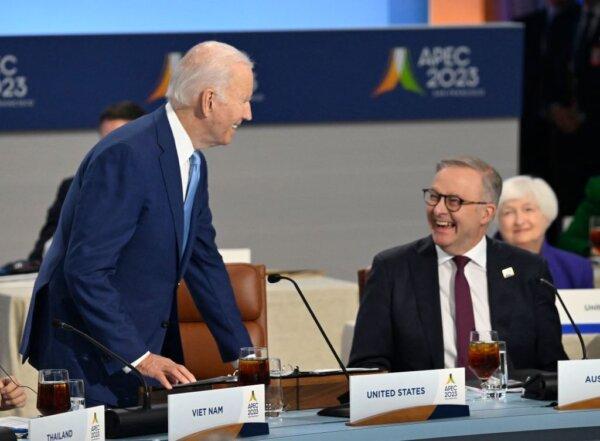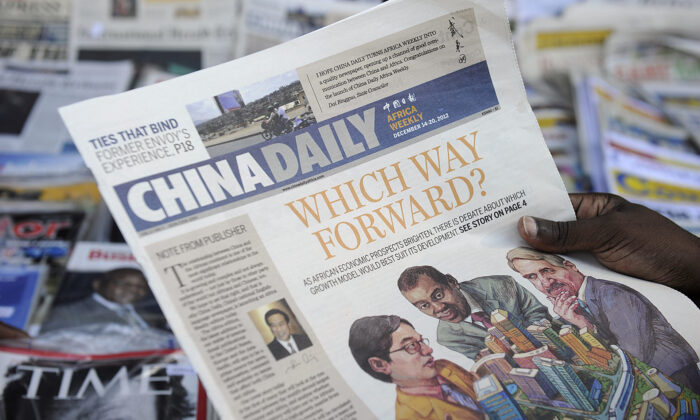The prime minister said his only motive for opposing the president-elect’s tariff plans is Australia’s national interest.
Beijing has quickly seized Australia’s opposition to U.S. President-elect Trump’s intention to impose tariffs on all imports, heaping praise on Prime Minister Anthony Albanese for showing “strategic autonomy” in an editorial in the Chinese Communist Party (CCP) mouthpiece, China Daily.
However, Albanese has been quick to play down the endorsement, telling reporters, “I don’t subscribe to the China Daily” and saying that his only motivation is improving Australia’s terms of trade.
The prime minister’s mastery of the “balancing act” between its alliance with Washington and economic interests with China drew accolades in the paper, along with his handling of the global political shift that has followed Trump’s impending return to America’s top job.
The CCP mouthpiece has been less enthusiastic about Australia’s leaders in the past, once branding former Prime Minister Scott Morrison, who led a government with a strong stance against Beijing, a “yes man” for the United States.
When reporters quoted the article to him at the APEC summit in Lima, Peru, Albanese was quick to emphasise that any policy changes had been made with an eye to their benefits to Australia, not Beijing.
“I make the point that the improvement in trade between Australia and China is about Australian jobs,” he said. “We’re a trading nation, and China is our major trading partner.
“And I am pleased that there’s an increase in our exports to China. We’ve done that without compromising any of Australia’s values by being clear about what our views are, and we’ve continued to do that, and I look forward to continuing to pursue Australia’s national interests because that’s my job.”
When asked if Australia’s membership of Western alliances such as Five Eyes and AUKUS—perceived by the CCP as hostile to its regime—meant it was in “strategic competition” with Beijing, Albanese said it was in Australia’s national interest to “support and continue to engage with our allies in the United States.”
“Our relationship with the United States is very different from our relationship with China, who have a different political system and different values,” he said.

“We will point that out where it’s appropriate, but we will also try to cooperate where we can … and I must say it’s in Australia’s national interest to support and engage with the United States.”
During a break in formal proceedings at APEC, the prime minister and incumbent U.S. President Joe Biden shook hands and could be seen laughing together as they briefly spoke. Albanese would not reveal the content of the conversation other than to say it had been “friendly.”
“[Biden] was upbeat. He was pleased to be here at APEC. He is, of course, continuing to work in the interests of the United States and will be attending the G20 meeting as well,” Albanese said.

